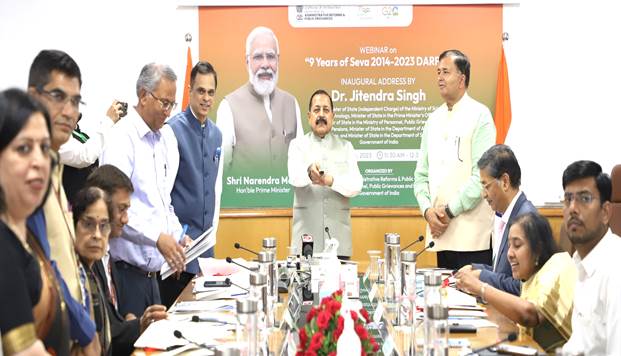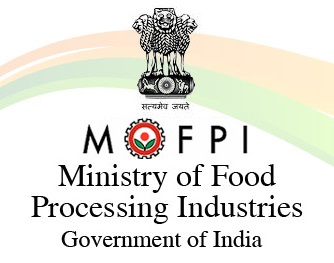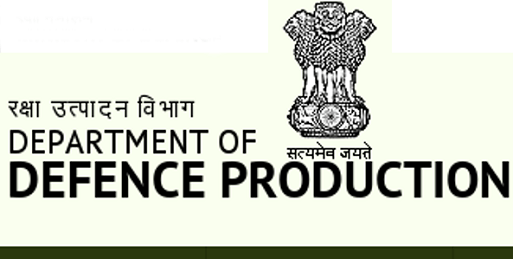Dr. Jitendra Singh, the Union Minister of State (Independent Charge) for Ministry of Science & Technology, PMO, Ministry of Personnel, Public Grievances & Pensions, Atomic Energy, and Space, highlighted that the administrative reforms implemented during the nine years under Prime Minister Narendra Modi’s leadership are aimed at achieving socio-economic transformation in the long run. Speaking at a webinar on Administrative Reforms (2014-2023) in New Delhi, Dr. Singh emphasized the use of technology and an integration approach as the two pillars of the revolutionary governance reforms carried out during this period. To commemorate the completion of nine years of the government led by Prime Minister Narendra Modi, Dr. Singh released two booklets, one flyer, and their e-versions on Administrative Reforms (2014-2023).
Dr. Jitendra Singh elaborated on the concept of “Minimum Government – Maximum Governance” that Prime Minister Narendra Modi introduced in 2014. This approach signifies a government that acts as a facilitator rather than an intimidator, focusing on increased transparency, accountability, and citizen participation. The benchmark for clean and effective government lies in establishing a robust grievance redressal mechanism. The Centralized Public Grievance Redress and Monitoring System (CPGRAMS) have undergone a ten-step reform process to improve disposal and reduce timelines, resulting in a weekly disposal rate of 95 to 100%. The average disposal time of grievances by Central Ministries/Departments has reduced from 32 days in 2021 to 17 days in April 2023. In April 2023 alone, Central Ministries/Departments redressed 106,847 grievances, with a pendency of 67,932 cases. The Department of Administrative Reforms and Public Grievances (DARPG) has also established a feedback mechanism through the BSNL Feedback Call Centre to assess the satisfaction level of complainants after grievance redressal. CPGRAMS has been integrated with the Common Service Centre (CSC) portal, available at over 500,000 CSCs, involving 250,000 Village Level Entrepreneurs (VLEs), thus enabling access to CPGRAMS-related services in remote areas.
Dr. Singh highlighted various out-of-the-box ideas implemented as part of administrative reforms, such as replacing the century-old practice of attestation of documents by gazetted officers with self-attestation and eliminating interviews for Group-B (Non-Gazetted) and Group-C posts in the Central Government since 2016. The government has also introduced a three-month central stint for fresh Indian Administrative Service (IAS) officers as Assistant Secretaries and undertaken structural reforms in the Prime Minister’s Awards for Excellence in Public Administration by abolishing around 1,450 government rules.
The Prime Minister’s Awards for Excellence in Public Administration play a significant role in recognizing the efforts and exceptional work of civil servants. The selection process for the awards has been institutionalized based on the performance of the district rather than individual civil servants. The awards also assess the scale and rating of the implementation of flagship schemes at the district level. The number of nominations from districts has increased significantly, and the awards serve as a platform for the dissemination of innovations and best practices throughout India. In 2022, a record number of 2,520 completed applications were received, and 743 out of 763 districts registered for the Prime Minister’s Awards. The Awards Scheme has been instrumental in promoting new practices, innovations, and overall well-being for citizens. The upcoming Prime Minister’s Awards, to be conferred in 2023, will have 15 recipients.





